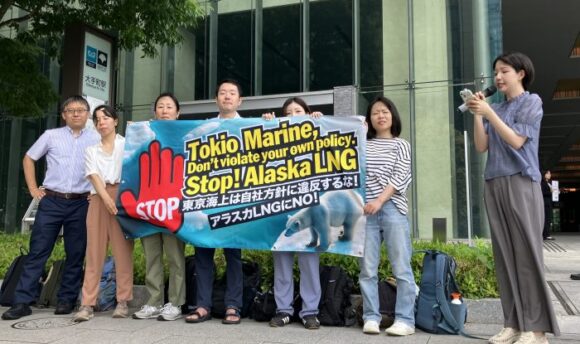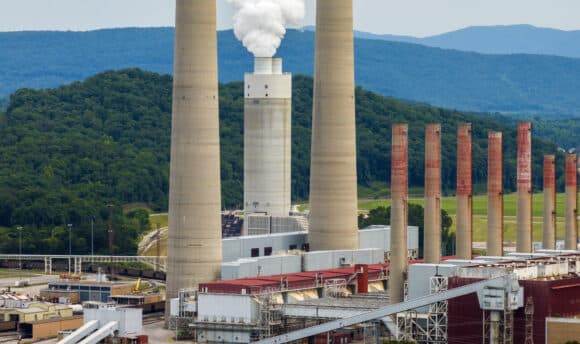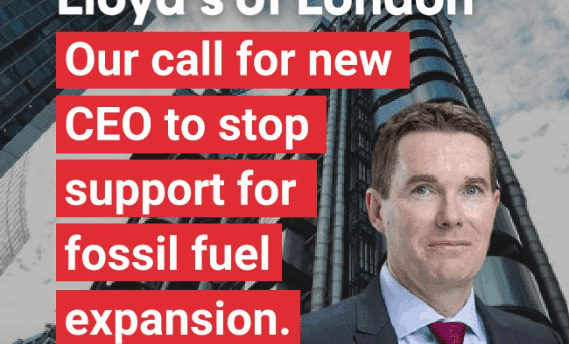PZU, the biggest financial group in Central and Eastern Europe with presence in Poland, Ukraine, and the Baltic states, released a weak new strategy for 2021 to 2024. With consolidated assets of close to 85 billion euros at the end of 2020, PZU remains the biggest EU-based insurer with no coal investment nor underwriting restrictions, not to mention no policy to exit the oil and gas sector. PZU’s new strategy for 2021-2024 period, published on 25.03.2021 did not commit to any short term policies that would limit its underwriting of and investments in fossil fuels. PZU still underwrites over 85% of coal mining in Poland and the vast majority of coal and lignite power plants including – Bełchatów, the biggest GHGs emitter on the European continent, and Turów power plant, where synchronisation of a new lignite unit with the grid is currently taking place.
PZU has not committed to end underwriting of new coal mines and plants which still leaves the gate open for the Polish insurer to underwrite a huge greenfield Złoczew lignite mine and new hard coal mines still planned and under construction in Poland. While the majority of major European based insurance and reinsurance companies have already managed to adopt coal underwriting and investment restrictions, PZU does not have any straightforward coal policy.
While presenting its 2021-2024 strategy, PZU was referring to the recently approved Polish Energy Policy until 2040 (PEP2040) which has been criticised by Ember for putting at risk the 2030 GHG reduction goals of the whole EU-27. The key three takeaways of Ember’s analysis were that:
- The Polish government still lacks ambition on coal. This means that Poland alone might hamper the EU’s 55% GHG emissions reduction target for 2030.
- Poland plans the biggest expansion of fossil gas use in the entire EU, from 14 TWh (in 2019) to 54 TWh (in 2030). This would make it the EU’s third largest gas-generating country by 2030.
- PEP2040 undermines the role of renewables in the transition. It also fails to acknowledge the current trajectory of PV growth.
In addition, on the same day, PZU published its non-financial report for 2020 confirming its support for energy companies using energy sources based on fossil gas and on top referring to it as low emissions fuel.
"Support for the most heavily coal dependent utilities in the EU, still allowing underwriting of new coal projects and enthusiastic support for gas companies are all proof that, despite all the rhetoric, PZU still stands on the side of the biggest climate villains in Poland - the fossil fuels sector companies, including the Polish coal sector. Considering fossil gas a low emissions fuel and referencing the energy policy of the Polish government which so far did not even accept the 2050 climate neutrality goal and whose policy is clearly at odds with both the EU climate 2030 targets and the Paris agreement lays bare the hypocrisy of PZU."
"We call on PZU reinsurers Swiss Re, Munich Re, Hannover Re, Gen Re (Berkshire Hathaway), Lloyd’s of London and VIG Re to pressure PZU to significantly reduce the underwriting of climate damaging fossil fuels, starting with coal companies. These reinsurers, except Gen Re, all have coal exclusion policies in place; some policies are significantly stronger than others but all of them recognise the urgent climate need to keep coal in the ground. Continuing to reinsure PZU without restriction when it has no clear Paris-aligned coal exit strategy in place is not sustainable and cannot continue.”
Fundacja „Rozwój TAK – Odkrywki NIE” together with the Insure Our Future network demands PZU take responsibility for the future of its clients and act on climate. We demand that the biggest Polish insurer adopts the following commitments:
- Immediately cease insuring new coal projects and coal companies, unless they are engaged in a rapid transition process from coal to clean energy of no more than two years.
- Immediately cease insuring new oil and gas expansion projects.
- Commit to phasing out insurance for oil and gas companies in line with a 1.5ºC pathway.
- Divest all assets from coal, oil and gas companies that are not in line with a 1.5ºC pathway, including assets managed for third parties.
- Bring stewardship activities, membership of trade associations, and public positions as shareholders and corporate citizens more broadly in line with a 1.5ºC pathway in a transparent way. This must include forceful advocacy for a green and just recovery from COVID-19.



